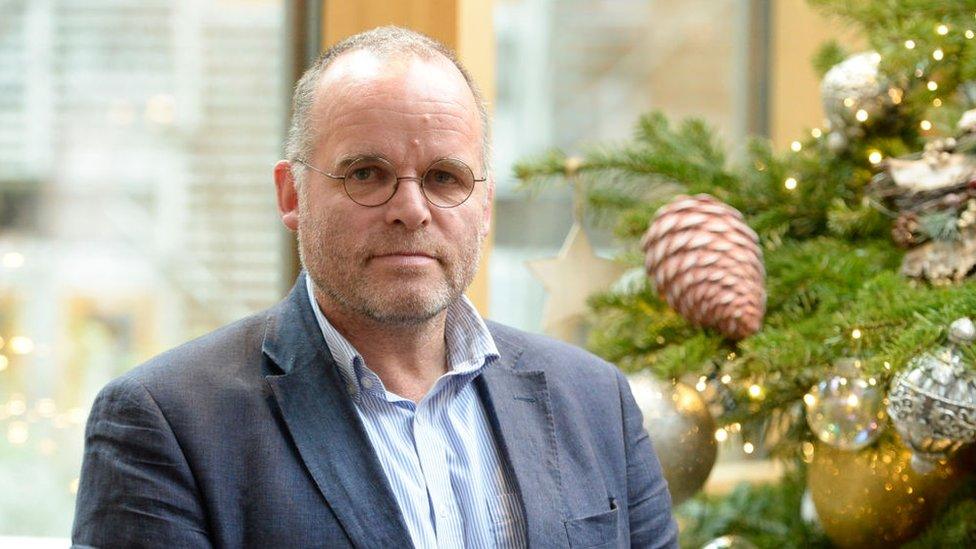Greens see 'no contradiction' over independence and recovery
- Published
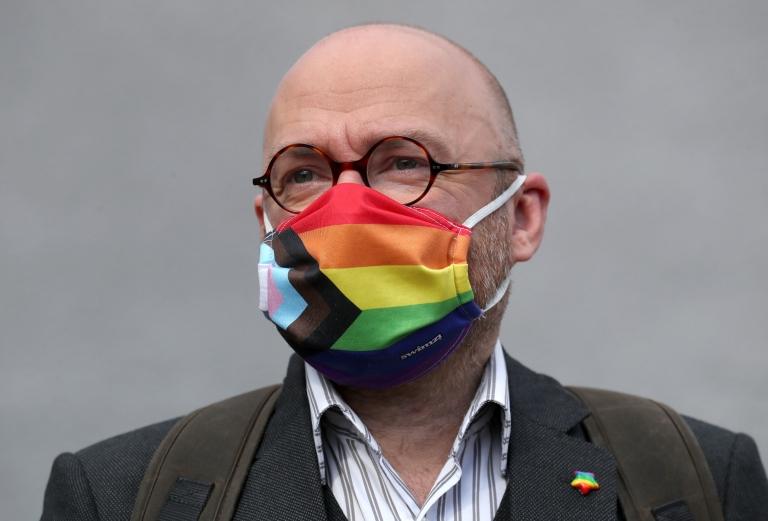
Patrick Harvie said independence would allow investment-led recovery
There is "no contradiction" in pursuing both economic recovery and independence at the same time, according to the Scottish Greens.
In a BBC Radio Scotland interview, co-leader Patrick Harvie said Scotland's ability to recover from the pandemic was hindered by the UK government.
Independence would allow investment-led recovery, he said.
Mr Harvie also said the country had to prepare for how the energy sector would be impacted by climate change.
Speaking on the Good Morning Scotland programme, he said Scotland needed independence to become a "fair and equal society".
"I don't see any contradiction in pursuing both objectives at the same time," he said.
"In many ways, the big economic powers that we would need to determine how we achieve a fair and green recovery involve both the powers that rest at Holyrood now and those that rest at Westminster.
"So setting out the purpose of what independence would be for is very much the same conversation as debating what kind of country is going to recover and emerge from this pandemic."

SCOTLAND ALERTS: Get extra updates on BBC election coverage

Scotland does not have the powers to protect those who fell through the gaps of income protection during the pandemic.
Universal basic income could not be implemented without the co-operation of Westminster, "and that does not look like it is forthcoming", Mr Harvie said.
Investment-led recovery, being pursued in many countries including the US, is limited by Scotland's limited use of borrowing power and taxation changes, he added.
All parties know the "age of oil is coming to an end", Mr Harvie said, calling for no new exploration and tax breaks to oil and gas companies to be redirected into creating new jobs.
"This economic change is coming, not because I've chosen, but because you cannot negotiate with this climate. We need to make this change, this change is coming."
'Communities on scrapheap'
He said there were an "incredible number of jobs" in marine renewables and connected supply chains.
"When economic change is coming you need to plan for it," Mr Harvie said.
"That's what didn't happen in the 80s with deindustrialisation. Communities were left on the scrapheap."
He added: "We must be investing now for the future."

SCOTLAND'S ELECTION: THE BASICS
What's happening? On 6 May, people across Scotland will vote to elect 129 Members of the Scottish Parliament (MSPs). The party that wins the most seats will form the government. Find out more here.
What powers do they have? MSPs pass laws on aspects of life in Scotland such as health, education and transport - and have some powers over tax and welfare benefits.
Who can vote? Anyone who lives in Scotland, is registered to vote and aged 16 or over on 6 May is eligible. You can register to vote online, external.

Mr Harvie said his party hoped to get a Green MSP in every region, and members would decide whether they would form a coalition government with a larger party, given the opportunity.
"In the last five years we've demonstrated that if an opposition party treats its job seriously and focuses on putting forward good, positive, constructive ideas to make life better for people in Scotland instead of scoring cheap political points, you can get results," he said.
"In the last five years we've demonstrated that is an opposition party that takes its job seriously and focuses on putting forward good positive constructive ideas that make life better for people in Scotland. Instead of scoring cheap political points you can get results," he said.
Groups "advance transphobia"
Referring to the resignation of Scottish Greens MSP Andy Wightman in December over the party's "alienating and provocative" stance on trans rights, Mr Harvie said transphobia was like racism.
At the time, Mr Wightman said he had wanted to vote in favour of an amendment to the Forensic Medical Services (Victims of Sexual Offences) Bill but it was made clear he would face "disciplinary action leading to possible suspension, deselection or expulsion" if he did not do so.
The amendment gave sexual assault victims the right to choose the sex, rather than just the gender, of the medical professional who examined them after a rape.
It was overwhelmingly backed by MSPs - with only the Scottish Greens and Liberal Democrats voting against.
Mr Harvie claimed most of Scotland's women's and feminist organisations did not think trans rights threatened women's rights, but a small number of women's groups had been formed to "advance transphobia".
"Our position on transpeople's human rights, which are under such extraordinary challenge at the moment, politically and in the media, was decided democratically on the conference floor," he said.

POLICIES: Who should I vote for?
CANDIDATES: Who can I vote for in my area?
PODLITICAL: Updates from the campaign

- Published18 April 2021
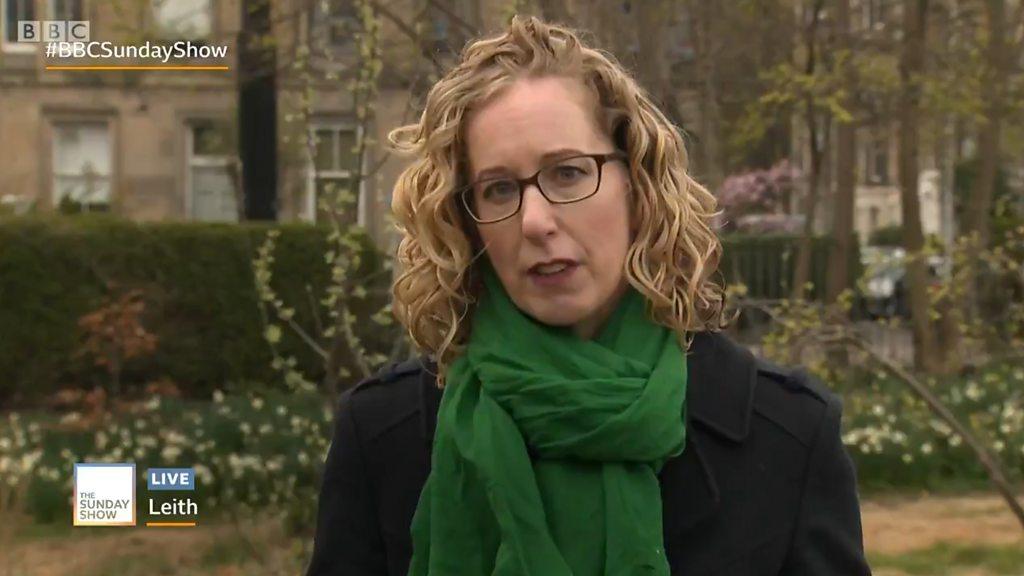
- Published18 April 2021
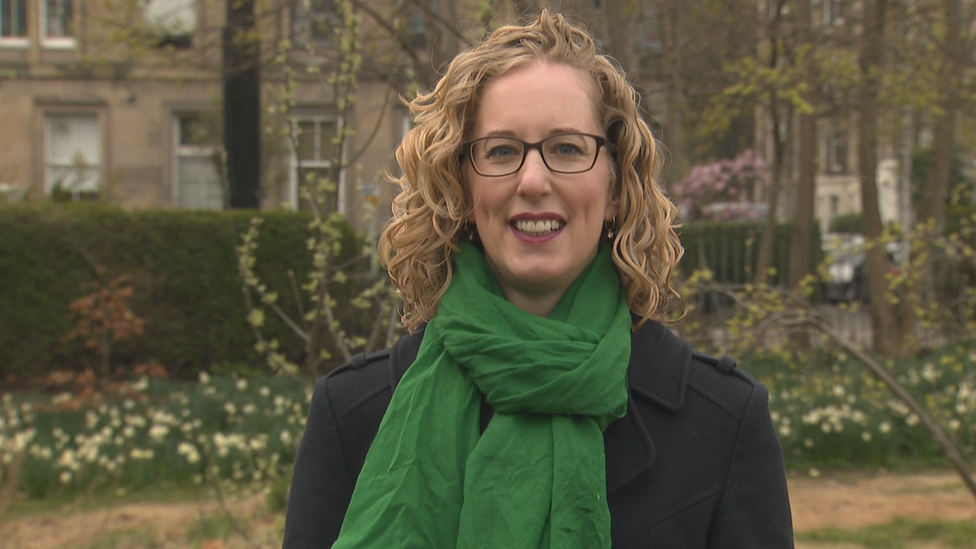
- Published14 April 2021

- Published14 April 2021
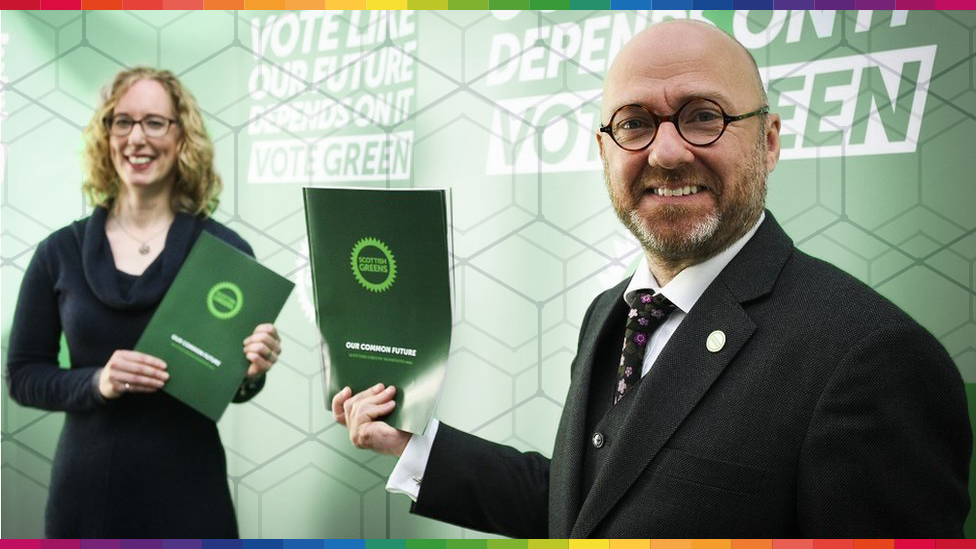
- Published14 April 2021
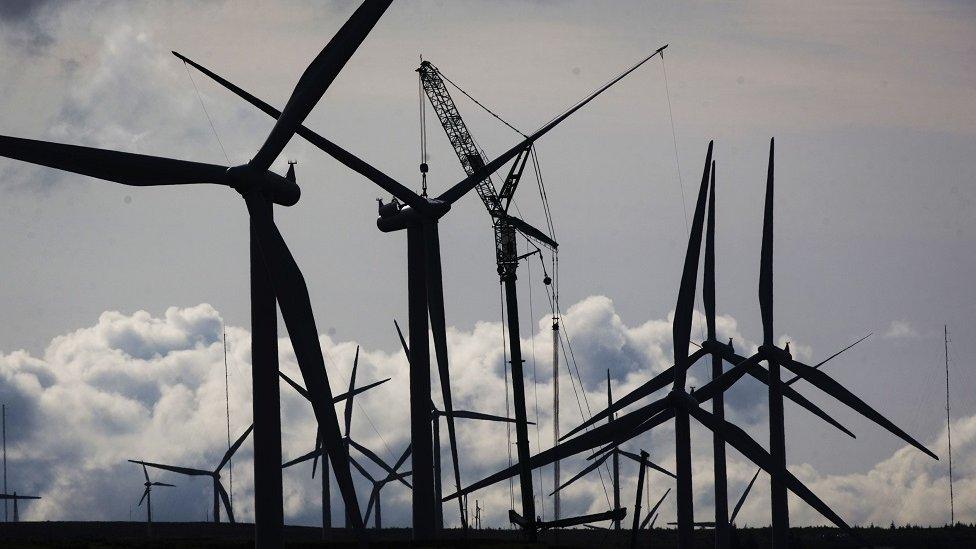
- Published18 December 2020
